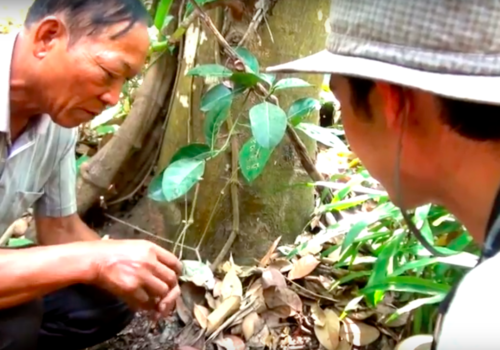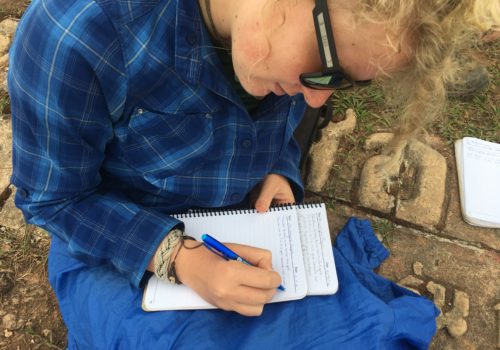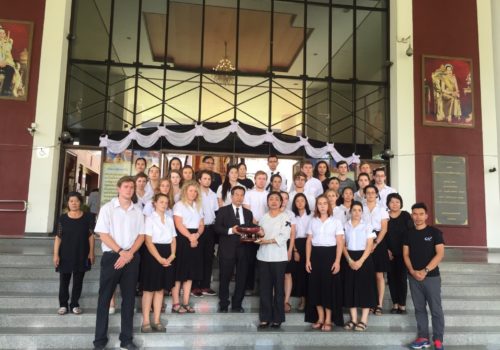Our students have just returned from our Forests course studying political ecology and the relationship of the Karen tribal people with the mountain forests that is their home. Long days in the mountains and rai, weaving naturally dyed cloth, eating “mu-sa-to” (delicious Karen chili paste), and learning from our tribal colleagues and teachers. This course is one of our oldest, and shows how wonderful learning can happen with village teachers and collaborative curriculum design.
Here are a few excerpts from student blogs and some photos.
In Ban Hui Hee, a Karen woman spinning thread. (from Jeremy)
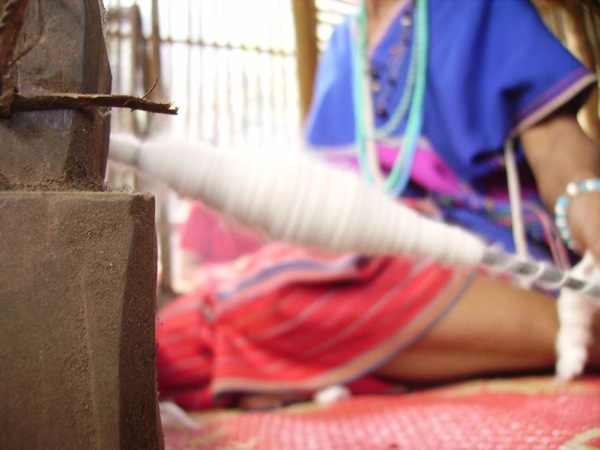
Spinning.
Another photo of spinning thread from Ally:

Grandmother.
Ally also wrote about her host mother:
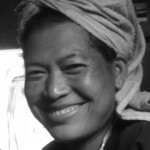
Mom
My beautiful host mother is one of the most loving people I have ever met. She spoke very little Thai, but was extremely excited to teach me about her culture. I have never seen anyone shower people with love and care the same way that she did. She taught me so much. Thank you.
Writing more about host families (from Johnny)
the host families were truly amazing. just in a matter of days, the connections we had with these people and their community were unexplainable. we would eat, sleep, work, and sit with them, yes, but in every village we would all meet together as a community so we students could ask them questions about their livelihoods. sometimes we would sing american songs for them and they would sing karen songs back, and the joy that we all felt was wonderful.
Click over to his blog for more on why we study with the Karen, and have them as our teachers:
we visited all these communities because of what they all had in common- their relationship with the forest. all of them lived subsistence-based lives, growing and gathering all the food they consume, cutting all the wood they use, and fetching all the water they drink. the history of these karen communities with the forest was one of harmony and sustainability. they always have lived with the forest and their lifestyles have not been destructive to the ecosystems they inhabit. but the government begs to differ.
Acadia has a great post up on sustainability, biodiversity and culture:
Before coming to Mae Hong Son and after spending a week reading and discussing the Karen and political ecology, I assumed that the attitude of the Karen toward natural resources would be born of subsistence necessity and utilitarianism. Now, I see that the situation is much more complex. Outside forces, such as the central Thai state, world religions, and the global economy have caused reactions from these mountain communities that have moved them away from traditional relationships with the natural world and toward a redefined culture-ecology connection. For example, increasing state control in conservation areas that are also home to Karen villages have caused the villages to systematically classify and distinguish their lands into different use areas in order to show that they are not pillaging the landscape as is commonly portrayed and also to lay claim to lands that might otherwise be taken away.
